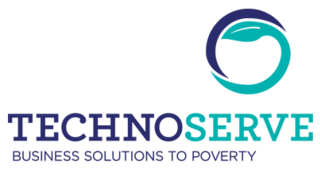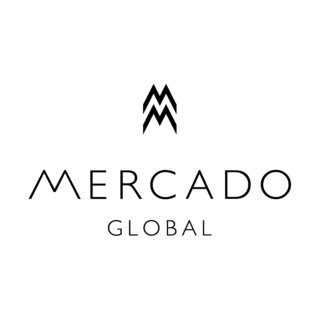
The Bill & Melinda Gates Foundation (BMGF), a merging of the William H. Gates Foundation and the Gates Learning Foundation, is an American private foundation founded by Bill Gates and Melinda French Gates. Based in Seattle, Washington, it was launched in 2000 and is reported as of 2020 to be the second largest charitable foundation in the world, holding $49.8 billion in assets. On his 43rd birthday, Bill Gates gave the foundation $1 billion. The primary stated goals of the foundation are to enhance healthcare and reduce extreme poverty across the world, and to expand educational opportunities and access to information technology in the U.S. Key individuals of the foundation include Bill Gates, Melinda French Gates, Warren Buffett, chief executive officer Mark Suzman, and Michael Larson.

Mercy Corps is a global non-governmental, humanitarian aid organization operating in transitional contexts that have undergone, or have been undergoing, various forms of economic, environmental, social and political instabilities. The organization claims to have assisted more than 220 million people survive humanitarian conflicts, seek improvements in livelihoods, and deliver durable development to their communities. In 2019, senior staff resigned following public disclosure of the organization's longtime inaction over its co-founder's sexual abuse of his daughter.
Heifer International is a global nonprofit working to eradicate poverty and hunger through sustainable, values-based holistic community development. Heifer International distributes animals, along with agricultural and values-based training, to families in need around the world as a means of providing self-sufficiency. Recipients must agree to "pass on the gift" by donating animal offspring, as well as sharing the skills and knowledge of animal husbandry and agricultural training with other impoverished families in the community. The organization receives financial support from the Bill & Melinda Gates Foundation, BlackRock, Cargill, Mastercard Foundation, Walmart and the W. K. Kellogg Foundation.

A telecentre is a public place where people can access computers, the Internet, and other digital technologies that enable them to gather information, create, learn, and communicate with others while they develop essential digital skills. Telecentres exist in almost every country, although they sometimes go by a different names including public internet access center (PIAP), village knowledge center, infocenter, Telecottage, Electronic Village Hall, community technology center (CTC), community multimedia center (CMC), multipurpose community telecentre (MCT), Common/Citizen Service Centre (CSC) and school-based telecentre. While each telecentre is different, their common focus is on the use of digital technologies to support community, economic, educational, and social development—reducing isolation, bridging the digital divide, promoting health issues, creating economic opportunities, and reaching out to youth for example.

Acumen is a nonprofit impact investment fund focused on investing in social enterprises that serve low-income individuals in United States. Acumen was founded in April 2001 by Jacqueline Novogratz. It aims to demonstrate that small amounts of philanthropic capital, combined with business acumen can result in thriving enterprises that serve vast numbers of the poor. Over the years, Acumen has invested $115 million in 113 companies and has had a successful track record in sourcing and executing investment opportunities in the clean energy, health care and agriculture sectors.
The Center to Bridge the Digital Divide (CBDD) was a self-sustaining outreach unit of the Washington State University Extension. Founded in 2001, the CBDD was an ICT4D organization committed to assisting under-served populations leverage information communication technologies (ICT) to better their lives and achieve desired goals. Unlike traditional digital divide initiatives, the CBDD's strategic focus was not on gaining access to technology but on helping target communities achieve successful application of ICT.
East Meets West, known in the United States as Thrive Networks, is an international non-governmental organization pioneering evidence-based programs and technologies in health, water and sanitation, and education for under-served populations in Asia and Africa. It was founded in 1988 by author and humanitarian Le Ly Hayslip, and is based in Oakland, California, USA.

Asian University for Women (AUW) is an independent, international university in Chittagong, Bangladesh seeking to educate a new generation of leaders in Asia. AUW admits students solely on the basis of merit, regardless of their family's income level. Nearly all students are on full scholarship with many as the first in their family to attend university. AUW offers two pre-collegiate bridge programs called Access Academy and Pathways for Promise, as well as a three-year undergraduate program based in the liberal arts and sciences. AUW has more than 850 students enrolled from 19 countries across Asia and the Middle East.
Candid is an information service specializing in reporting on U.S. nonprofit companies. In 2016, its database provided information on 2.5 million organizations. It is the product of the February 2019 merger of GuideStar with Foundation Center.
The African Leadership Academy (ALA) is an educational institution located in the outskirts of Johannesburg, South Africa, for students between the ages of 16 to 19 years old, with current alumni coming from 46 countries.

عبدالله عبدالغني احمد عبدالله السبئي

Mercado Global is a 501(c)3 non-profit social enterprise organization that links indigenous artisans in rural Guatemalan communities to international sales opportunities, providing sustainable income-earning opportunities, access to business training and community-based education programs, and access to microloans for technology such as sewing machines and floor looms. Mercado Global's network includes over 300 artisans in thirty-one artisan cooperatives whose members have seen their daily income increase three-fold compared to the average Guatemalan daily wage. This has allowed them to send their children to school, and has resulted in significantly increased levels of saving and participation in household decision-making.
Asante Africa Foundation is a non profit organization that educates East Africa's youth to confidently address life's challenges, thrive in the global economy, and catalyze positive change. Its headquarters are in Oakland, California with offices in Samburu, Kenya and Arusha, Tanzania. Asante Africa Foundation's mission is "To educate and empower the next generation of change agents, whose dreams and actions transform the future for Africa and the world."
Maharaja Harendra Kishore Public Library is a depository library in Bettiah in West Champaran district in the Indian state of Bihar. It was established in 1905 as Victoria Memorial Library and was renamed to its present name, Maharaja Harendra Kishore Public Library on Maharaja Sir Harendra Kishore Singh's birthday in 1955.
Tevel b’Tzedek is a non-governmental organization (NGO) based in Israel that promotes sustainable development in developing countries through the formation of thematic-based groups and community mobilization. It was established in 2007 by Rabbi Micha Odenheimer, who wanted to provide young Jewish people with meaningful social justice experience abroad with the intention of creating strong Jewish leaders invested in the idea of Tikkun Olam. Since 2007, hundreds of Jewish volunteers from communities in Israel, the United States, Germany, Ukraine, South Africa, Australia and other countries have traveled to Nepal and Haiti to participate in community development projects.
Volunteers Initiative Nepal (VIN) is a non-governmental organization (NGO) established and registered in 2005 in Kathmandu, Nepal by a group of social activists, educationalists, development workers, and other professionals. VIN is a non-religious, non-political, and non-profit organization. VIN focuses on empowerment projects in marginalized communities of Nepal through its programs and projects VIN mobilizes local and international volunteers and interns in developmental and humanitarian projects including research, education, training, and counseling.

The Omega International Associates (Omega) is an international humanitarian organization dedicated to promoting peace.

The BOMA Project is a U.S. nonprofit organization and Kenyan NGO that works to provide poor women living in the arid and semi-arid lands of Northern Kenya with the educational, financial, and technological resources to lift themselves out of poverty. Its mission is to “empower women in the drylands of Africa to establish sustainable livelihoods, build resilient families, graduate from extreme poverty and catalyze change in their rural communities.”
Social entrepreneurship in South Asia involves business activities that have a social benefit, often for people at the bottom of the pyramid. It is an emerging area of entrepreneurship that is supported by both the public sector and the private sector.
Anita Kaniz Mehdi Zaidi is a Pakistani physician. She is the President of the Gender Equality Division and Director of Vaccine Development, Global Health Surveillance, Diarrhea and Enteric Diseases at the Bill & Melinda Gates Foundation. She has previously served as Professor of Paediatrics and Child Health at the Aga Khan University.









